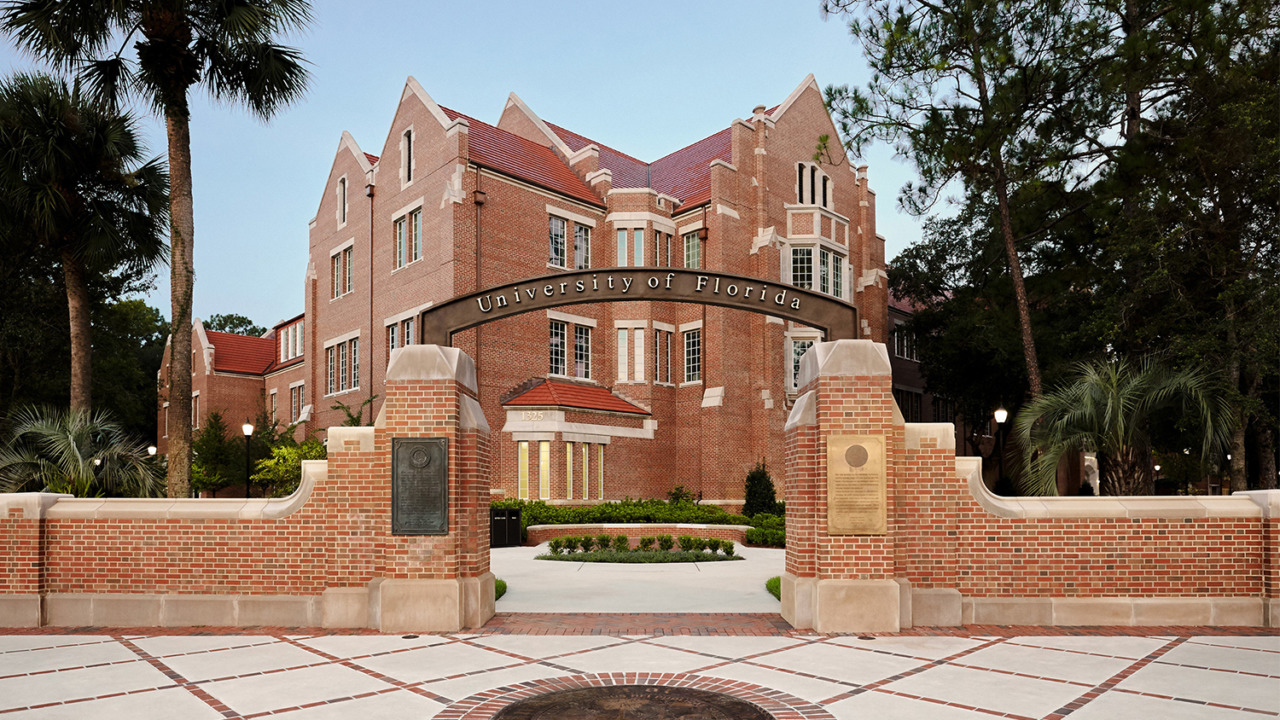The Speech Police at the University of Florida

By: Pooja Bachani
For both Danny Weldon and Sarah Long, attending the University of Florida (UF) runs in the family.
Danny was born and raised a UF fan. Both of his parents were UF alumni, and he dreamed of one day being a Gator. That dream came true in 2015 when he arrived on campus as a freshman.
Sarah grew up in West Palm Beach and followed in her sister’s footsteps when she accepted an offer from UF.
And while family shaped their decisions to attend UF, one student organization has shaped their time at UF.
In 2016, Danny attended the Conservative Political Action Conference, and he came back to campus motivated to start a chapter of Young Americans for Freedom (YAF). Sarah discovered YAF in her freshman year and is now the current president.
Unfortunately, their university and their student organization have now come into direct conflict.
When the YAF chapter tried to become a budgeted student organization, it found itself on the wrong side of an unconstitutional school policy. Despite being a campus organization for two years, the group has been denied access to the funding it needs to bring its viewpoints to campus.
UF requires students to pay a mandatory Activity and Service Fee and then distributes those funds to student organizations. The UF Student Government has unbridled discretion to allocate those funds to certain student groups, whichever they deem worthy, for student advocacy.
Simply put, the student government holds the purse strings and decides (based on undefined and subjective criteria) which student organizations can receive funding to bring speakers to campus and host events. This allows the student government to favor certain views over others.
And, apparently, it doesn’t favor YAF’s viewpoints.
This is a complete contradiction of what the university is meant to be – a free marketplace of ideas designed to challenge the next generation of leaders. And it raises several questions: Why deny a group the opportunity to share its beliefs? What is the basis for this decision? And since the U.S. Constitution reigns supreme on a public, taxpayer-funded campus, how can UF administrators and the student government ignore the First Amendment?
These are the very questions that YAF is asking.
The root of the problem is that each YAF member must pay mandatory fees as a condition of attending the University. The fees collected from YAF members are funding other organizations that promote opposing viewpoints. Thus, YAF is compelled to support the speech of others but YAF cannot access that funding to promote their own viewpoints.
On top of that, there is no way to challenge the budgeting decisions; the current policy fails to provide an appeals process if the organization’s request for funding is denied.
YAF has been trying to receive “budgeted organization” status for two years – which means they would be granted a set operating budget for the year. Instead, YAF has been forced to operate as a non-budgeted student organization, which means they have to apply for special funding every time they want to hold an event.
During those two years, the YAF chapter did receive limited funding from the student government for events through the university’s special request policy.
But special requests were allocated on a one-off basis and governed by the unbridled discretion of student government. When YAF later applied for funding for another speaker using the same system this past year, the university denied the request and announced a new policy that only budgeted organizations would be permitted to fund outside speakers.
“Thus,” as the YAF complaint explains, “favored [student] organizations, with semester operating budgets, can advocate for their own viewpoints by bringing in guest speakers, but other student organizations cannot obtain funding to similarly express themselves.”
That’s why Alliance Defending Freedom is representing YAF in a legal challenge to these unconstitutional policies.
YAF is simply trying to express its viewpoints on campus, and it is permitted to do so under the First Amendment. However, it is being denied equal access to student activity funding because of its viewpoints.
Since when did a difference of opinion or thought become a threat that needed to be shut down? Isn’t the whole point of a university to expose students to different ideas and challenge their thinking?
Unfortunately, at the University of Florida, the only ideas students can be exposed to are the ones the student government and school administrators deem worthy.